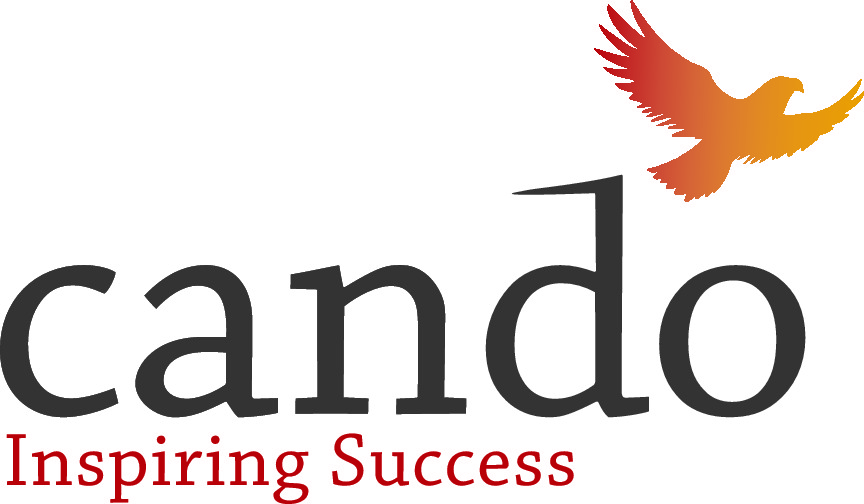Indigenous Business Support Services: A Case Study of the Quebec Entrepreneurial Ecosystem in Canada
DOI:
https://doi.org/10.54056/VHDZ2822Keywords:
Adaptation, Advisory services, Business And Economics, Case studies, Companies, Culture, Development strategies, Economic development, Entrepreneurs, Entrepreneurship, Environmental economics, Ethnic Interests, Funding, Indigenous peoples, Influence, Local government, Objectives, Professionals, Small business, Support servicesAbstract
Support services - also known as accompaniment practices and advisory services - are essential for the development of small businesses. In terms of support services specific to Indigenous businesses, the literature is rather silent. Yet, one can expect that the recent and growing market-related entrepreneurial trend in Indigenous communities will generate increasing accompaniment needs in those contexts. The objective of this research is to better understand the entrepreneurial ecosystem and its current synergy, as well as identifying the challenges of Indigenous entrepreneurship. To do so we rely on a qualitative methodological approach, focusing on the Indigenous entrepreneurial ecosystem in Quebec, Canada. Overall, our research highlights the need to adapt support services to Indigenous-related entrepreneurial issues. This research paves the way for a broader discussion related to how local governments, economic development organizations, funding agencies, and business support services organizations can work together for a comprehensive economic development strategy within Indigenous contexts.
Downloads
References
André-Grégoire, M.-C. (2017). Chronique juridique: les réserves indiennes, ces terres de « Sa Majesté ». Autochtones [Radio program]. Radio-Canada.
Barès, F., & Chabaud, D. (2012). Repenser les enjeux de l’accompagnement aux entreprises. In M. Gomez-Breysse & A. Jaouen (Eds.), L’entrepreneur au 21e siècle: Reflet des évolutions sociétales (pp. 103–122). Malakoff Cedex, France: Dunod.
Canadian Human Rights Commission. (2013). Report on Equality Rights of Aboriginal People. https://www.chrc-ccdp.gc.ca/sites/default/files/equality_aboriginal_report.pdf
Chabaud, D., & Brenet, P. (2019). Groupe thématique Entrepreneuriat de territoire. Paris, France: l’Académie de l’Entrepreneuriat et de l’Innovation. https://www.researchgate.net/publication/333929721_Groupe_thematique_Entrepreneuriat_de_territoire
Chabaud, D., Messeghem, K., & Sammut, S. (2010). Vers de nouvelles formes d’accompagnement. Revue de l’Entrepreneuriat, 9(2), 1–5.
Cloutier, L., Cueille, S., & Recasens, G. (2014). Mise à l’épreuve de la cartographie des concepts comme méthode intégrative d’identification et d’analyse d’un écosystème entrepreneurial. Revue internationale P.M.E., 27(3–4), 15–49.
Coates, K., & Crowley, B.L. (2013, May). New beginnings: How Canada’s natural resource wealth could re-shape relations with Aboriginal People. Aboriginal Canada and the Natural Resource Economy Series. Ottawa: Macdonald-Laurier Institute. http://www.macdonaldlaurier.ca/files/pdf/2013.01.05-MLI-New_Beginnings_Coates_vWEB.pdf
Dana, L.P., & Anderson, R.B. (2007). International handbook of research on Indigenous entrepreneurship. Cheltenham, UK: Edward Elgar Publishing.
Delic, S. (2009). Statistical information pertaining to socio-economic conditions of northern Aboriginal people in Canada: Sources and limitations. Northern Review, 30, 119–150.
Dumais, L. (2011). La recherche partenariale au Québec: tendances et tensions au sein de l’université. SociologieS [Eelectronic article], https://journals.openedition.org/sociologies/3747
Dussault, R., & Erasmus, G. (1996). Report of the Royal Commission on Aboriginal Peoples, Vol. 1: 695. Ottawa, Canada: The Commission.
FNQLEDC. (2013). Les freins au développement économique des Premières Nations du Québec. Report published by First Nations of Quebec and Labrador Economic Development Commission, 10 p.
Fortin-Lefebvre, E. (2018). L’entrepreneuriat en contexte enclavé: le cas des Premières Nations du Québec. [Ph.D. thesis. Université du Québec à Montréal, Canada]. Archipel. https://archipel.uqam.ca/11471/1/D3408.pdf
Gerber, L.M. (2014). Education, employment, and income polarization among Aboriginal men and women in Canada. Canadian Ethnic Studies Journal, 46(1), 121–144.
Isenberg, D.J. (2010). How to start an entrepreneurial revolution. Harvard Business Review, 88(6), 40–50.
Kulchyski, P. (2013). Aboriginal rights are not human rights: In defence of Indigenous struggles. Winnipeg, MB: ARP Books.
Lincoln, Y.S., & Guba, E.G. (1994). Competing paradigms in qualitative research. In N.K. Denzin & Y.S. Lincoln (Eds.), Handbook of qualitative research (pp. 105–117). London: Sage.
Lindsay, N. (2005). Toward a cultural model of Indigenous entrepreneurial attitude. Academy of Marketing Science Review, 5, 1–17.
Mack, E., & Mayer, H. (2016). The evolutionary dynamics of entrepreneurial ecosystems. Urban Studies, 53(10), 2118–2133.
Malmberg, A., & Maskell, P. (2002). The elusive concept of localization economies: Towards a knowledge-based theory of spatial clustering. Environment and Planning A: Economy and Space, 34(3), 429–449.
Messeghem, K., Sammut, S., Chabaud, D., Carrier, C., & Thurik, R. (2013). L’accompagnement entrepreneurial, une industrie en quête de leviers de performance? Management International, 17(3), 65–71.
Moroz, P.W., & Hindle, K. (2012). Entrepreneurship as a process: Toward harmonizing multiple perspectives. Entrepreneurship Theory and Practice, 36(4), 781–818.
Niska. (n.d.). Profile of the entrepreneurial support system in Eeyou Istchee. https://www.cweia.ca/images/entrepreneur/Brochure_ProfileEnt-V4.pdf
Patton, M.Q. (2002). Qualitative research and evaluation methods (3rd ed.). Thousand Oaks, CA: Sage Publications.
Peredo, A.M., & Anderson, R.B. (2006). Indigenous entrepreneurship research: Themes and variations. In C.S. Galbraith & C.H. Stiles (Eds.), Developmental entrepreneurship: Adversity, risk, and isolation (pp. 253–273). Oxford, UK: Elsevier JAI Press.
Peredo, A.M., Anderson, R.B., Galbraith, C.S., Honig, B., & Dana, L.P. (2004). Towards a theory of Indigenous entrepreneurship. International Journal of Entrepreneurship and Small Business, 1(1/2).
Philippart, P. (2016). L’écosystème entrepreneurial: pour une intelligence territoriale. In P. Philippart (Ed.), Écosystème entrepreneurial et logiques d’accompagnement (pp. 11–28): Caen, France: Éditions EMS.
Proulx, M.-U. (2012). Regards sur l’économie des collectivités autochtones du Québec. Québec City: Presses de l’Université du Québec.
Quesnel, J. (2019). Unlocking home ownership is the key to the growth of Indigenous communities. The Globe and Mail (May 13).
Schmitt, C., Ndjambou, R., & Husson, J. (2016). L’accompagnement entrepreneurial: Proposition d’une lecture critique. Revue africaine de management, 1 (1), 1–12.
Secrétariat aux affaires autochtones. (2011). Amérindiens et Inuits. Portrait des Nations autochtones du Québec. http://www.autochtones.gouv.qc.ca/publications_documentation/publications.htm#publications_administratives
Sharma, G., & Bansal, P.T. (2020). Cocreating rigorous and relevant knowledge. Academy of Management Journal, 63(2). doi:10.5465/amj.2016.0487
Spigel, B. (2015). The relational organization of entrepreneurial ecosystems. Entrepreneurship Theory and Practice, 41(4), 49–72.
Vedel, B., & Stepgany, E. (2011). Peut-on améliorer les indicateurs de performance des incubateurs? Entreprendre & Innover, 3(9–10), 89–96.
Verzat, C., & Gaujard, C. (2009). Expert, conseiller, mentor, confident ou tout B la fois. L’expansion entrepreneuriat, 2, 6–12.
Yin, R.K. (1994). Case study research: Design and methods (2nd ed.). Newbury Park, CA: Sage Publications.
Downloads
Published
Issue
Section
License
Copyright (c) 2020 Cando

This work is licensed under a Creative Commons Attribution-NonCommercial-NoDerivatives 4.0 International License.




